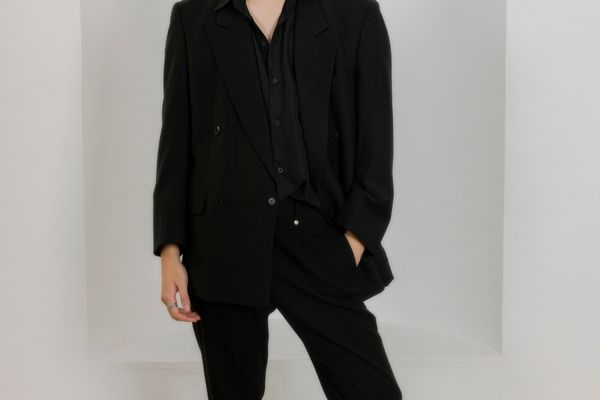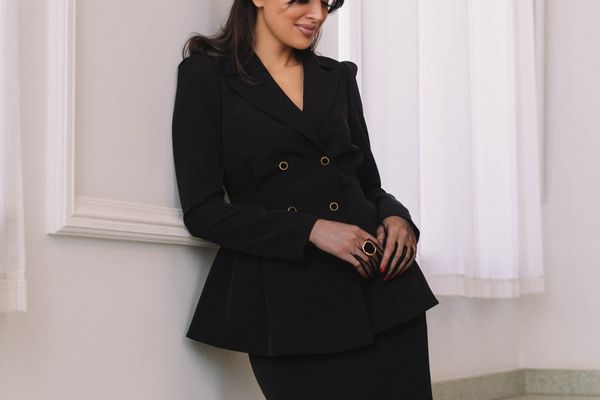You may want to appear intelligent during a divorce and wonder, “What to wear to divorce court.” It is normal to have wardrobe disasters, but planning could avoid them.
Divorce courts might be daunting since they are very different from other courtrooms.
Remember that the courtroom is typically a formal setting.
Dress appropriately if going to a church service or an important job interview.
If you’ve ever gone through a divorce, you know that it’s not only about the legal issues; there’s also the phycological cost of having to appear before a judge with your ex-spouse.
There is more to consider when choosing what to wear to the court besides these wardrobe essentials.
There is evidence, for instance, that your choice of clothing’s colors and patterns should be influenced.
What to wear to divorce court
It’s best to present yourself professionally when you attend court. You want to appear polished and professional, but you don’t want to appear as though you’re going to a job interview (which is what this is).
You only need to wear excellent, comfortable clothing—nothing flashy or expensive. Ensure your dress isn’t too tight or baggy because you’ll likely be sitting for a long time.
If you wear heels, be sure it is comfortable, and don’t wear shoes that don’t support circulation.
For Males: Business suit in solid charcoal gray or navy blue; white or pale blue dress shirt; conservative tie. Also, Solid charcoal gray or a navy blue business suit, a white or light blue dress shirt, or the traditional link can be put on.
For Females: Business suit in solid navy blue or black; white or pastel blouse; exactly two accessories, either two pieces of conservative jewelry or one scarf and one piece of jewelry. A business suit in a solid shade of navy blue or black; a white or pastel shirt; and exactly two accessories, such as a scarf and a piece of jewelry or two pieces of conservative jewelry, can also be used.
If you do not own a suit, wear the closest approximation that you own. If your best pants are a pair of khakis, wear those. If your best pants are a pair of jeans, wear them and ensure they’re freshly washed and ironed.
Generally speaking, a belt looks best with slacks or a dress.
The best belts are looser-fitting and can be worn with anything that has a belt loop, such as cardigans, blazers, and coats. You can find short belts suitable for wearing over vests and sweaters.
How should I dress for divorce court?
You ought to present yourself professionally if you’re attending court. When getting ready for divorce court, the last thing on your mind might be what to wear. You might expect the judge to consider your case reasonably and base their decision solely on the evidence.
Although a judge will try to be as neutral as possible, the reality is that how you look and act throughout a divorce frequently affects the outcome.
Wearing whatever you feel most comfortable in may not affect how your case turns out. It would probably be better not to wear a designer suit, for instance, if you’re trying to demonstrate to the judge that you’re having trouble making ends meet.
While you don’t want to appear overly formal or informal, you also don’t seem excessively effortful. In addition to being respectful of the setting, you should feel confident and at ease in your attire.
Wearing something with a strong statement is one method to do this.
Wear a blouse featuring a child’s picture, for instance, if your case is custody and visiting rights. Or, if your case includes dividing property, dress in a blazer with pockets so you may keep items like receipts and paperwork there.
Another method is wearing attire appropriate for the courtroom, such as more formal or formalistic attire.
You don’t want a judge to make you feel bad in front of many people.
I suggest wearing your hair pulled back and away from your face, though you are welcome to wear it down as long as it is not in the way or close to your face. If something is too outrageous, the judge will point it out and laugh.
3 Things to consider when dressing to court
There are a few things to consider if you’re heading to court.
- The first rule is that you should always wear slacks and a shirt or jacket unless it’s your case. Don’t worry if your court doesn’t have a dress code; most do.
- Also, avoid making it appear as though you’re trying to make a good impression in court. Anyone else there for the same reason as you should not be bothered by your appearance or other issues.
- Last but not least, remember that it’s alright if some individuals don’t seem to notice anything about what you’re wearing. Most times, makeup should be avoided as this will make you look absent-minded and unserious for the occasion.

6 Items to wear to divorce court (male)
The finest hues to wear to court are “conservative” (such as white, blue, navy, gray, and similar colors), and you should avoid outrageous patterns.
Preparing is one of the most crucial things to remember when appearing in court. The last thing you want is your lawyer or judge to come up to you without warning.
Although you might be tempted to wear jeans to court, a sharp business suit is the only appropriate clothing choice for males.
If you wish to respect the judge and the court processes, there is no other choice except to do this.
Listed below are some sartorial suggestions:
- Suits and ties
- A classy set of khakis, jeans, or slacks
- If you’re presenting yourself, a pair of jeans and a t-shirt will do (and if you have to forego shoes, that’s alright too).
- Wear shorts and a tank top if it’s hot outside.
- Wear layers and thick socks if it’s cold outside to prevent your feet from becoming numb.
- Check that your shirt collar is wide enough to prevent choking or catching on to something.

What to wear to divorce court (female)
You need to get ready for court by dressing up! What Women Should Wear to Family Court. Women should wear a dark and non-patterned conservative dress, dark pantsuit, or skirt suit. You could also wear a long-sleeved shirt, pants or a long skirt, and dress shoes or pumps. Women should also avoid bright and loud colors.
First, you should be aware that this is not a formal occasion.
Although you are free to wear anything, having something a little less formal would be ideal than your regular work or gym attire.
Please don’t go overboard with the fine clothes because they will likely expect to see some casual attire as it is a family court.
Since you’ll be standing for most of the day, you should wear comfortable shoes.
Let them know in advance if you have any unique requirements, like orthotics, customized insoles, or anything else, so that they can make accommodations for you.
Women should dress professionally by wearing either a skirt, pants or a dress shirt.
Avoid being too exposing, excessively sexy, or dressed inappropriately.
Wearing tight shirts, short skirts, or sundresses is not advised.
Avoid wearing spaghetti-strap shirts or crop tops.
Never show your legs in a trial.
Wear black or nude pantyhose underneath if you decide to wear a skirt.
Avoid covering your legs in any striking pattern.
Under no circumstances wear a shirt with leggings or yoga trousers when you are in court.
what color to wear to divorce court
The finest colors to wear to court are probably navy blue or dark gray.
These hues imply seriousness.
At the same time, they lack the negative associations that are frequently connected to the color black (for instance, some people associate black with evil, coldness, and darkness. Although dark colors are considered appropriate, black should be avoided as this may look very authoritative. Loud colors should be avoided as they don’t look formal for such occasions.
The finest hues to wear to court are “conservative” (such as white, blue, navy, gray, and similar colors), and you should avoid outrageous patterns and shocking fashion statements. Don’t dress to distract.
Never put on black. Many individuals believe that wearing black to court is appropriate; they do not. Black is ideal for funerals, but wearing it to court could be fatal to your case. Instead, go for navy blue or gray.
Conclusion
Generally, you are expected to be professional and formal when addressing the court or in court. To ascertain that, it is advisable to go for dark or neutral colors and a simple look.
Try not to be overly dressed, keep things simple, and ensure you are decent; too much skin is usually avoided at the court’s premises, revealing minor and avoiding extremely tight wear.
Overall, your comfort is crucial, and your mode of dressing your identity, find a way to represent your personality, execute confidence and stay comfortable.








